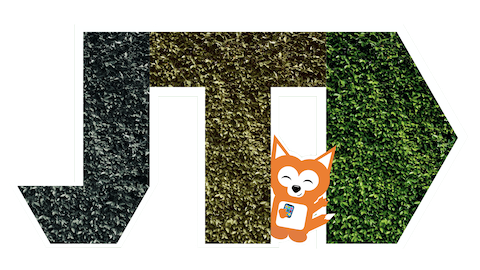EN: I'm burnt out
I have fared really well during the pandemic in my role as Product Manager, all things considered: I hadn’t expected to adapt to fully remote work like I did, when such an important part of my job is connecting with my team — something admittedly better done in person.
Our team grew, our product kept adapting to customer needs and expanding in key metrics, introducing new features…
So I neglected to see the signs lately: the ability to sustain my attention on a single task diminished immensely, I continuously had to write down what I had just thought, to avoid it escaping me the moment I switched windows from JIRA to Slack, my motivation dropped like a narcoleptic seagull.
Above all, my energy in meetings went from jolly and optimistic to grey and muted, and my mood veered into depressive territory. And all of this applied almost exclusively to my time in front of the computer, or thinking about work. I love what I do; why don’t I love doing it anymore?
As a Product Manager, I just felt incompetent, and frustrated. As a psychologist, I didn’t see it coming at all. But as the saying goes, “the shoemaker’s son always goes barefoot”. When something hits close to home, it’s hard to apply your objectivity to it.
Even though the DSM-5 — the most well-known mental health diagnosis manual — is still studying burnout before adding it as a fully documented mental health issue, the ICD-10 (the tenth edition of the World Health Organisation’s International Classification of Diseases) provides a definition:
Burn-out is a syndrome conceptualised as resulting from chronic workplace stress that has not been successfully managed. It is characterised by three dimensions:
Feelings of energy depletion or exhaustion;
Increased mental distance from one’s job, or feelings of negativism or cynicism related to one's job; and
Reduced professional efficacy.
But what I personally felt is I had no control: I was sitting on a raft going down river, being thrown around in choppy waters by my work circumstances, and there was no end in sight for this descent through the rapids.
So my plan became to take back that control.
First of all, I recognised that these symptoms were not a manifestation of personal failure. And I didn’t achieve this by myself — I confided in another product manager in my team, and he reminded me that I was historically very competent in my job, and the circumstances have become harder to keep up with.
The lesson I took from this conversation was that my performance is also a product of my environment, not just my skill set.
This understanding that this is neither an internal problem, nor a permanent condition led me to understand that I can act on this and change it. So it fuelled my motivation to move forward.
I had stated earlier that not only was the status quo working against me, but it was also not likely to change anytime soon — unless I did something about it.
So I set out to identify the causes, as they would undoubtedly give me clues as to the solutions.
What I noticed was that feeling of “descent through the rapids” came from being continuously bombarded with demands for attention throughout the day, that snatched me up from any kind of deep focus when switching contexts. I was planning for the next hour, rather than for the next sprint — let alone the next quarter.
To counteract this, I made a conscious effort to shield myself from these interruptions: muting Slack notifications, asking my team to only push through Do Not Disturb if the reply could not be postponed to our stand-up later in the day, relaying non-urgent topics to the next meeting with my stakeholders…
With more uninterrupted time in my hands, I decided to always have a single thing to focus on until I finished it, and tried to define a clear decision-making process to identify that single thing, by re-centring myself on the goals of my role — understanding the product vision, and making sure to deliver features that reach the business goals in a timely fashion. Whatever I was doing, it needed to align to my personal objectives.
And it worked to an extent — while unable to change the geography of the rapids I was rafting through, at least I could paddle a bit more strategically.
It still took me a while to realise that I had been trying for a long while to change the culture of my work environment — which has a lot of dependencies from external teams, and an extensive company history that shapes it — and I was never likely to succeed.
They don’t work in a necessarily wrong way, but I can’t expect to have a job helming a raft* and not to bump against rocks going down waterfalls.
So I’m swapping the yellow safety vest for a different outfit — something with wings instead of flotation devices. I’m leaving my current project for something new. I felt initially inclined to see this as a personal failure — why didn’t I succeed in adapting an entire environment to the way I needed to work? — until I realised what led me here was my failure in recognising that some things cannot be changed and in times like these, if I can’t change myself, I’m at least lucky enough to be able to change projects.
Let’s see how it goes.
* Yes, I know rafts don’t have helms. Not all my metaphors are perfect, go with it.
Thank you for taking an interest in this article! I write one or two articles per month. If you’d like to receive them via email, drop me a message ☺️ I’ve got this automated for my Portuguese articles, so let me know!

